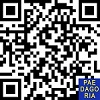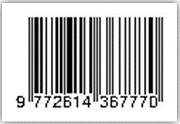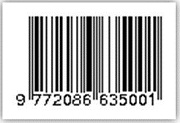STUDY IN THE LABORATORY: THE EFFECT ON STUDENT LEARNING OUTCOMES
Abstract
Abstrak: Laboratorium adalah menjadi tempat siswa untuk melakukan eksperimen. Banyak modifikasi laboratorium seperti mengubahnya menjadi laboratorium virtual atau berbasis komputer. Namun nyatanya ada temuan yang mengungkap bahwa tidak ada perbedaan laboratorium virtual dengan laboratorium tradisional. Tetapi, siswa yang tidak belajar berbasis kegiatan laboratorium menunjukkan hasil belajar yang lebih rendah. Riset ini bertujuan untuk mengetahui pengaruh pembelajaran berbasis laboratorium dalam meningkatkan hasil belajar siswa. Desain eksperimen menggunakan pre-test post-test dilakukan terhadap 48 siswa sebagai grup eksperimen. Grup pengontrol sebanyak 48 siswa. Sampel siswa diambil menggunakan teknik cluster sampling. Data dikumpul dengan tes pilihan ganda. Analisis data temuan memakai uji t sampel bebas. Hasil riset mengungkap bahwa hasil belajar siswa meninggi di grup eksperimen. Hasil belajar siswa di grup kontrol lebih rendah dari grup eksperimen. Disimpulkan dalam temuan ini bahwa pembelajaran berbasis laboratorium dapat meninggikan hasil belajar siswa. Walaupun pencapaian belajar siswa dalam kelas tanpa pembelajaran laboratorium meningkat, tetapi tidak lebih baik dari siswa yang belajar berbasis laboratorium. Riset ini merekomendasikan bahwa pembelajaran laboratorium menjadi kegiatan pembelajaran yang bias digunakan untuk memperbaiki hasil belajar siswa.
Abstract: A laboratory is a place for students to do experiments—many laboratory modifications include turning them into virtual or computer-based laboratories. But some researcher findings reveal that there is no difference between virtual laboratories and traditional laboratories. However, students who do not learn under student laboratory activities show lower learning outcomes. This study aims to determine the effect of laboratory-based learning on improving student learning outcomes. The experimental design used pre-test post-test was conducted on 48 students as an experimental group. The 48 learners consist entirely of the control condition. The samples were taken by using a technique of cluster sampling. Multiple-choice exams were also used to obtain data. The independent t-test was used for calculating data findings. The study found that in the experimental group, student learning outcomes increased. Student learning performances in the control group were lower than in the experimental group. It is concluded in these findings that laboratory-based learning can improve student learning outcomes. Although student learning outcomes in classes without laboratory learning have increased, it is not better than students who learn laboratory-based. This research recommends that laboratory learning be a learning activity that can empower the learner's learning outcomes.
Keywords
Full Text:
DOWNLOAD [PDF]References
Bahtiar, & Dukomalamo, N. (2019). Basic science process skills of biology laboratory: improving through discovery learning. Biosfer: Jurnal Pendidikan Biologi, 11(1), 58–69.
Baken, E. K., Adams, D. C., & Rentz, M. S. (2020). Jigsaw method improves learning and retention for observation-based undergraduate biology laboratory activities. Journal of Biological Education, 00(00), 1–6. https://doi.org/10.1080/00219266.2020.1796757
Bice, R. D. J. (2020). Rural High School Chemistry Teachers’ Views and Implementation of Inquiry-Based Laboratory Instruction as Set Forth in the Georgia Standards of Excellence". Doctor of Education in Secondary Education Dissertation, 26.
Braun, M., Kirkup, L., & Chadwick, S. (2018). The impact of inquiry orientation and other elements of cultural framework on student engagement in first year laboratory programs. International Journal of Innovation in Science and Mathematics Education, 26(4), 30–48.
Brockman, R. M., Taylor, J. M., Segars, L. W., Selke, V., & Taylor, T. A. H. (2020). Student perceptions of online and in-person microbiology laboratory experiences in undergraduate medical education. Medical Education Online, 25(1), 1710324. https://doi.org/10.1080/10872981.2019.1710324
Brusa, J. L., & Lupardus, R. C. (2020). Method for Integrating Components of a CURE into an Introductory Biology Traditional Laboratory. Journal of Microbiology & Biology Education, 21(3), 21.3.76. https://doi.org/10.1128/jmbe.v21i3.2235
Bugarcic, A., Zimbardi, K., Macaranas, J., & Thorn, P. (2012). An inquiry-based practical for a large, foundation-level undergraduate laboratory that enhances student understanding of basic cellular concepts and scientific experimental design. Biochemistry and Molecular Biology Education, 40(3), 174–180.
Damopolii, I., Lefaan, P. T., & Manga, M. (2018). Hubungan Motivasi Belajar dengan Hasil Belajar Biologi Siswa Di SMP 21 Rendani Manokwari. Prosiding Seminar Nasional Pendidikan Biologi, 1(1), 427–430.
Hake, R. R. (1998). Interactive-engagement versus traditional methods: A six-thousand-student survey of mechanics test data for introductory physics courses. American Journal of Physics, 66(1), 64–74. https://doi.org/10.1119/1.18809
Hayat, M. S., Anggraeni, S., & Redjeki, S. (2011). Pembelajaran berbasis praktikum pada konsep invertebrata untuk pengembangan sikap ilmiah siswa. Bioma, 1(2), 141–152. https://doi.org/10.1177/0308275X06070122
Husnaini, S. J., & Chen, S. (2019). Effects of guided inquiry virtual and physical laboratories on conceptual understanding, inquiry performance, scientific inquiry self-efficacy, and enjoyment. Physical Review Physics Education Research, 15(1), 10119. https://doi.org/10.1103/PhysRevPhysEducRes.15.010119
Ika, Y. E. (2018). Pembelajaran Berbasis Laboratorium IPA untuk Melatih Keterampilan Komunikasi Ilmiah Siswa SMP Kelas VII. JIPFRI (Jurnal Inovasi Pendidikan Fisika Dan Riset Ilmiah), 2(2), 101–113. https://doi.org/10.30599/jipfri.v2i2.338
Islahudin, Utami, L. S., & Ahmad. (2018). Kooperatif Berbasis Kegiatan Laboratorium. Paedagoria: Jurnal Kajian, Penelitian Dan Pengembangan Pendidikan, 9(2), 86–90.
Kayacan, K., & Ektem, I. S. (2019). The effects of biology laboratory practices supported with self-regulated learning strategies on students’ self-directed learning readiness and their attitudes towards science experiments. European Journal of Educational Research, 8(1), 313–323. https://doi.org/10.12973/eu-jer.8.1.313
Kirkup, L., Varadharajan, M., & Braun, M. (2016). A comparison of student and demonstrator perceptions of laboratory-based, inquiry-oriented learning experiences. International Journal of Innovation in Science and Mathematics Education, 24(2), 1–13.
Kurniawan, R. P., Damopolii, I., & Sirait, S. H. K. (2021). The Correlation Between Biology Teacher Learning Strategies During The Covid-19 Pandemic on Student Motivation. In AECON (pp. 299–305).
Lal, S., Lucey, A. D., Lindsay, E. D., Treagust, D. F., Long, J. M., Mocerino, M., & Zadnik, M. G. (2020). Student perceptions of instruction sheets in face-to-face and remotely-operated engineering laboratory learning. European Journal of Engineering Education, 45(4), 491–515. https://doi.org/10.1080/03043797.2019.1654433
Litasari, K. N., Setiati, N., & Herlina, L. (2014). Profil Pembelajaran Biologi Berbasis Laboratorium Dan Implikasinya Terhadap Hasil Belajar Siswa Di Sma Negeri Se-Kabupaten Semarang. Journal of Biology Education, 3(2), 172–179. https://doi.org/10.15294/jbe.v3i2.4457
Masrun. (2018). Implementasi model problem based learning dengan media lingkungan alam sekitar pada materi interaksi makhlukhidup dengan lingkungan untuk meningkatkan aktivitas dan hasil belajar siswa. Paedagoria: Jurnal Kajian, Penelitian Dan Pengembangan Pendidikan, 9(2), 75–81.
Momsen, J. L., Long, T. M., Wyse, S. A., & Ebert-May, D. (2010). Just the facts? Introductory undergraduate biology courses focus on low-level cognitive skills. CBE—Life Sciences Education, 9(4), 435–440.
Mutch-Jones, K., Sengupta, N., Minor, V. C., & Goudsouzian, L. K. (2021). Professional science education videos improve student performance in nonmajor and intermediate biology laboratory courses. Biochemistry and Molecular Biology Education, 49(1), 151–159. https://doi.org/10.1002/bmb.21415
Narep. (2019). Penerapan Metode Eksperimen Untuk Meningkatkan Aktivitas Dan Hasil Belajar IPA Materi Suhu Dan Kalor pada Siswa Kelas V SD. Paedagoria: Jurnal Kajian, Penelitian Dan Pengembangan Pendidikan, 10(1), 80–86.
Nasir, N. I. R. F., Damopolii, I., & Nunaki, J. H. (2020). Pengaruh Pembelajaran Inkuiri terhadap Level Berpikir Siswa SMA. Bioilmi: Jurnal Pendidikan, 6(2), 112–119.
Ngwu, A. N., Eze, N. E., & Ezea, C. C. (2020). Effects Of Group And Individual Laboratory Activities On Students’ Achievement In Biology. Sapientia Foundation Journal of Education, Sciences and Gender Studies (SFJESGS), 2(3), 13–23.
Ogunkunle, S. J., & Akinsola, M. K. (2020). Simulated Laboratory and Enriched Laboratory Guide Material Experiments as Catalysts for Improving Basic Science Students’ Achievement. US-China Education Review B, 10(3), 123–134.
Purba, S. T., & Siboro, T. D. (2020). Efektivitas Penerapan Penggunaan Laboratorium Riil Dalam Tatanan Pembelajaran Berbasis Masalah Terhadap Keterampilan Proses Sains Siswa Kelas XI SMA Negeri 6 Pematangsiantar. Best Jounal, 3(2), 205–210.
Santoso, A., & Arief, A. (2015). Penerapan Metode Pembelajaran Berbasis Laboratorium untuk Meningkatkan Hasil Belajar Siswa Materi Alat-Alat Optik Kelas X di SMA Negeri 1 Plaosan, Magetan. Jurnal Inovasi Pendidikan Fisika (JIPF), 04(03), 117–121.
Špernjak, A., & Šorgo, A. (2018). Differences in acquired knowledge and attitudes achieved with traditional, computer-supported and virtual laboratory biology laboratory exercises. Journal of Biological Education, 52(2), 206–220. https://doi.org/10.1080/00219266.2017.1298532
Strimaitis, A. M., Southerland, S. A., Sampson, V., Enderle, P., & Grooms, J. (2017). Promoting Equitable Biology Lab Instruction by Engaging All Students in a Broad Range of Science Practices: An Exploratory Study. School Science and Mathematics, 117(3–4), 92–103. https://doi.org/10.1111/ssm.12212
Susanti, D., Nilawati, W., Fitri, U. R., & Kurniawati, H. (2020). The contribution of physics media laboratory management towards physics education courses. Journal of Physics: Conference Series, 1521(2), 0–7. https://doi.org/10.1088/1742-6596/1521/2/022031
Sya’diyah, A. H., & Supardiyono. (2020). Penerapan model pembelajaran guided discovery berbasis laboratorium untuk meningkatkan hasil belajar siswa pada materi getaran harmonis di SMA Negeri 1 Cerme. IPF: Inovasi Pendidikan Fisika, 09(02), 187–191.
Thees, M., Kapp, S., Strzys, M. P., Beil, F., Lukowicz, P., & Kuhn, J. (2020). Effects of augmented reality on learning and cognitive load in university physics laboratory courses. Computers in Human Behavior, 108, 106316. https://doi.org/https://doi.org/10.1016/j.chb.2020.106316
Tsunekage, T., Bishop, C. R., Long, C. M., & Levin, I. I. (2020). Integrating information literacy training into an inquiry-based introductory biology laboratory. Journal of Biological Education, 54(4), 396–403. https://doi.org/10.1080/00219266.2019.1600569
DOI: https://doi.org/10.31764/paedagoria.v12i1.4235
Refbacks
- There are currently no refbacks.
Copyright (c) 2021 Fenny Mustika Piliang, Insar Damopolii

This work is licensed under a Creative Commons Attribution-ShareAlike 4.0 International License.
Paedagoria : Jurnal Kajian, Penelitian dan Pengembangan Kependidikan
Fakultas Keguruan & Ilmu Pendidikan | Universitas Muhammadiyah Mataram.
_______________________________________________
 | Paedagoria : Jurnal Kajian, Penelitian dan Pengembangan Kependidikan |
______________________________________________
CURRENT INDEXING:
EDITORIAL OFFICE:


















